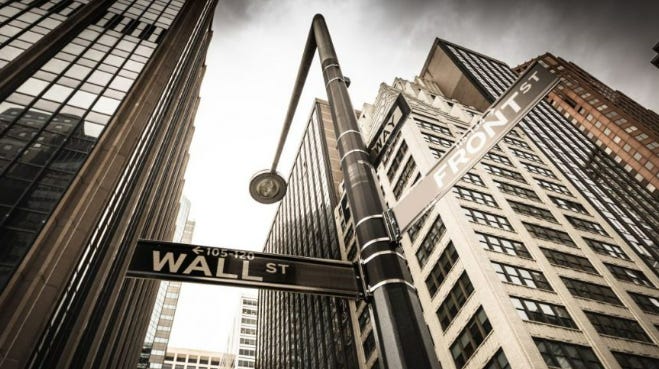via QTR’s Fringe Finance
Last night I had the pleasure of speaking with Jason Burack from Wall Street for Main Street to offer up my updated thoughts on the Federal Reserve, the economy and the state of the world in general.
The first thing we talked about was current Fed policy, which I told Jason I thought was a case of too much, too late. I made the argument that the Fed is, as it always does, overshooting its mark, and doing so at the wrong time.
This, as I have written several times, is why I believe the market is going to be in for a serious crash at some point within the next several months. I reiterated my stance to him that the economy and stock market have not yet truly digested 3% interest rates and, when they do, there will be hell to pay.
“They’re so nervous about the inflation issue, they have said ‘come hell or high water, we’re going to 4%’. I believe the consequences of 300bps of hikes in nine months have not even begun to be felt yet,” I said.
“I think we’re going to have a serious moment of real panic, probably an order of magnitude bigger than the one they just had in England,” I said. “They’re going to try and ram this thing through and get us to 4% by the end of the year. The consequences will be devastating. It’s going to be a wild ride.”
I also talked to Jason about why I think equity markets wind up 30% to 40% lower from here easily, assuming the Fed holds its course. If the Fed does decide to pivot, it would be a different story – but for now, with the Fed holding course, I think it is inevitable that our markets run into a brick wall, relatively soon.
I laid out my most recent game theory on the Fed’s current options – including whether it will pivot or not, and how it will react to the Bank of England restarting quantitative easing – in my article I wrote on Wednesday of this week: Did The Global Pivot Back To QE Just Begin?
One of the things that we talked about that I haven’t written about is the trouble that U.S. pension funds could be in.
The Bank of England intervention this week was a result of pension funds potentially having a “Lehman Moment”. Reports noted that pension plans overseas were hastily selling bonds to try and meet margin calls, a scenario that I am certain we are not far off from here in the U.S.:
Pension schemes had been selling gilts to meet emergency collateral calls or reduce exposure, pensions advisers said.
“There are schemes running out of cash at the moment,” one pensions consultant said before the BoE intervention.
From FT, here’s what scared the BoE straight:
“At some point this morning I was worried this was the beginning of the end,” said a senior London-based banker, adding that at one point on Wednesday morning there were no buyers of long-dated UK gilts. “It was not quite a Lehman moment. But it got close.”
I told Jason yesterday that I don’t think the United States is far off. All I have been reading over the last five years is how pension funds here (1) can’t meet their targets despite the market ripping and (2) were taking on leverage, managed by their obviously unqualified CIOs, to try and deploy the world’s worst carry trade and play catch-up/generate more yield.
“I think what they did in Chicago was once they failed to meet their targets – first off, several funds have turned over their CIOs – they then issued a bond or something ridiculous to try and put on this carry trade where they’re going to pay 50bps on the bond and try and generate an extra 100bps of return. Some asinine, basically borrowing money to try and invest it,” I told Jason. “You have nonsense like that all throughout the [pension fund] system.”
“If we can’t meet our obligations with pension funds when the market is screaming higher, what are we going to do now? I guarantee you there are pension funds right now already in big, big, big trouble and we just haven’t seen the news yet,” I continued. “We don’t know the extent of it yet.”
The fact that these funds were unable to post the returns that they needed during arguably the most euphoric bull market in history is extremely concerning. When conditions get worse for poor managers like these, like they are now, the capital destruction could be devastating.
From there, we went on to talk about how government policy has enabled terrible monetary policy and how it could play a role in upcoming elections.
We also talked about the state of Covid lockdowns, the Canadian government finally surrendering its long-coveted travel restrictions and the state of politics globally.
“I think we’re going to see similar conservative populist movements throughout the world [like the one we just saw in Italy],” I told Jason.
I made the argument to Jason that the political poles (not polls) had reversed – in essence, the party that was once liberal has now become fascist, and the party that was once conservative has now become liberal.
I talked to him about how the disintegration of US cities, combined with the economic destruction and the authoritarian lockdowns put forth by the current administration are all going to be tough to ignore for voters during the upcoming midterm elections. I further explained to him that I wasn’t surprised about the results of Italy’s latest election and predicted that many other countries globally would start to soon follow suit.
My full interview with Jason lasted a little bit over an hour and you can listen to it here:
